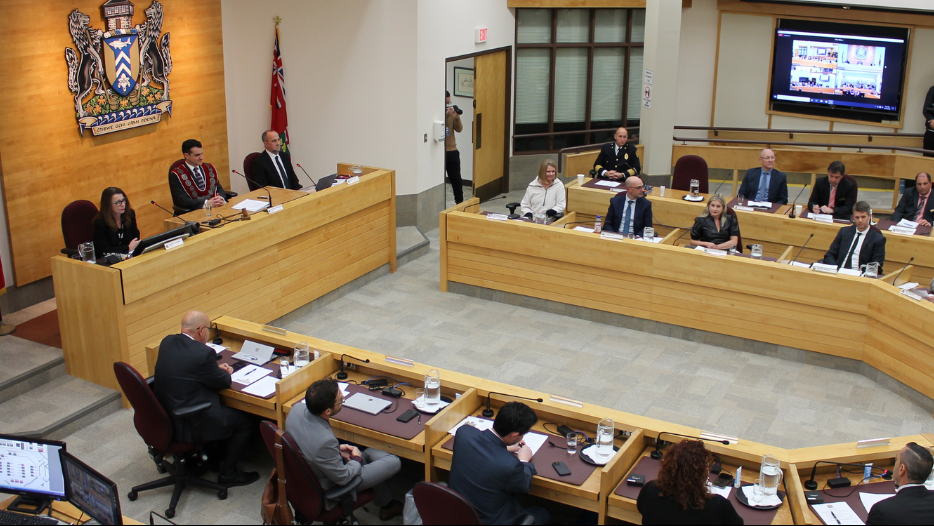Municipalities may establish heritage committees:
Municipal heritage committee
The council of a municipality may by by-law establish a municipal heritage committee to advise and assist the council on matters relating to this Part, matters relating to Part V and such other heritage matters as the council may specify by by-law.
Section 28 (1) of the Ontario Heritage Act
What is a Heritage Committee?
A Heritage Committee is an optional advisory committee reporting directly to council that is responsible for the stewardship of designated heritage properties in the municipality and for providing advice and recommendations to council on care and conservation of the municipality’s heritage as outlined by:
- Ontario Heritage Act (OHA)
- Municipal by-law establishing the committee
- Other municipal policies, procedures or directives
They also help with identifying, preserving, and promoting significant local archaeological resources and other local heritage by encouraging heritage restoration projects and increasing public awareness of their value.
Who is on a Heritage Committee?
Council may appoint a minimum of 5 members:
The committee shall be composed of not fewer than five members appointed by the council.
Section 28 (2) of the Ontario Heritage Act
What is a Heritage Committee responsible for?
Review and provide recommendations to council on applications:
- Heritage Permits
- Heritage Grant Program
- Approval or denial for listing, designating, de-listing or de-designating buildings, properties, or cultural landscapes
- Development applications that include Heritage Impact Assessments
- Heritage Conservation District Studies
Advise and assist Council on matters relating to Parts IV and V of the Ontario Heritage Act, including the following matters:
Under Part IV of the Ontario Heritage Act:
- Adding and removing properties from a Register of Municipal Heritage Properties
- Issuance, withdrawal and consideration of objections to Notice of Intention to designate heritage properties under Section 29
- Consideration of applications to alter or demolish under Sections 33 and 34
Under Part V of the Ontario Heritage Act:
- Designation of Heritage Conservation District Study Areas under Section 40.1;
- Designation of Heritage Conservation Districts under Section 41;
- Adoption of new Heritage Conservation District Plans under Section 41.1;
- Consideration of applications to alter or demolish under Section 42.
- Consideration and receipt of annual reporting on the activities of the Heritage Planning Branch of the Planning, Real Estate and Economic Development Department, including but not limited to, reporting on use of Delegated Authority, refusal of designation requests.
- The ability to comment on Zoning By-law amendments, Official Plan amendments and Plan of Subdivision applications that involve designated or listed heritage properties.
- The ability to comment on Notices of Demolition relative to properties listed on the City’s Heritage Register.
- The ability to be consulted by staff and/or have matters referred to it by other Standing Committees relative to the built heritage portfolio.
- The ability to make recommendations to Council and other Standing Committees on matters related to the built heritage portfolio that may be identified by the Committee.
- The ability to be consulted on development projects by other levels of government or large-scale private sector developments where consultation would assist in the planning process and the protection of built heritage resources.
What laws govern the Heritage Committee?
Heritage Committee meetings must be open to the public (as with all municipal committee meetings), with some exceptions.
If you believe that a meeting was closed to the public improperly (ie. the reason doesn’t fall within one of the 14 exceptions), you can submit a complaint to the Ontario Ombudsman.
Terms of Reference examples
Ontario Heritage Trust
Ontario Heritage Trust is a Crown agency that was developed to conserve, interpret, and share Ontario’s heritage. Together they conserve provincially-significant cultural, natural, tangible, and intangible heritage, interpret Ontario’s history, and educate the public about the province’s historical importance within Canada’s overall national narrative.



Comments
We want to hear from you! Share your opinions below and remember to keep it respectful. Please read our Community Guidelines before participating.